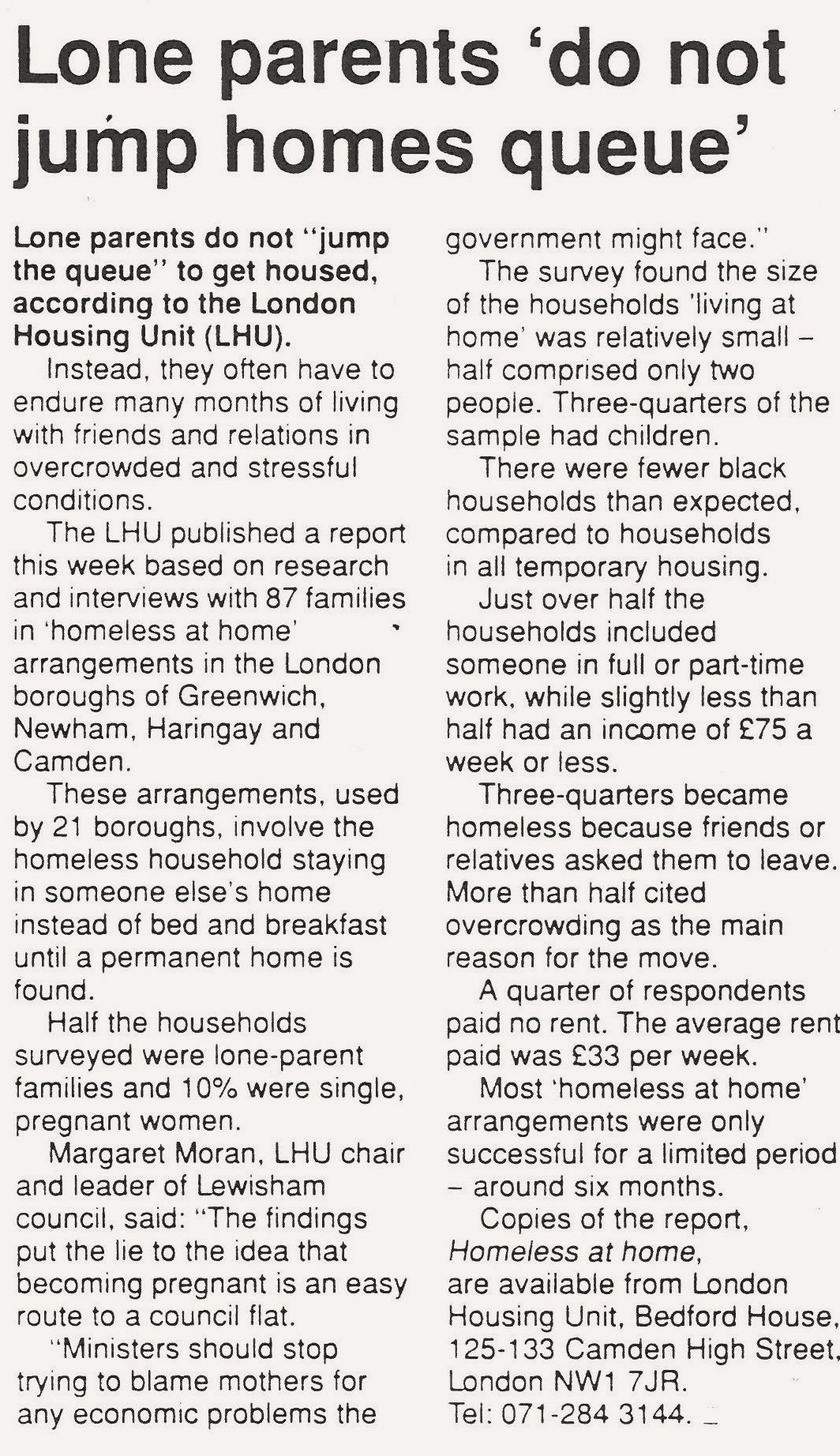
A false assumption existed that an unsupported mother with children received council accommodation easily. Policy varied from borough to borough, and the path to an adequate and affordable home could be long and winding. One possible route for a mother was a ‘mother and baby home’ for up to two months, then on to bed and breakfasts or cheap hotels. Alternatives included squats or refuges. If or when a mother was offered a council tenancy, it was likely the property would be in a rundown neighbourhood; evidence suggests Black families were deliberately placed in such environments.
[Image: ‘Lone Parents ‘do not jump homes queue’ RC/PC/11/01/H]
In 1978 government plans to end child benefit paid to migrant mothers for dependent children living abroad were revealed. The proposals concerned the children of mothers who had been unable to accompany them to England, or had had difficulty keeping them here due to costs and childcare. This instigated the ‘Child Benefits for All’ campaign which accumulated support from numerous organisations and individuals. The proposal to end child benefit for migrant mothers was viewed as differential treatment of separated immigrant families. The proposed policy would stand in contradiction with the ethos of both the Sex Discrimination and the Race Relations acts at the time.
“Mothers’ Day is a sick joke”, wrote Wages Due Lesbians, “when the government is limiting further our possibility to be mothers and bring up our children how and where we want”. A 1978 speech by Rachel Smith, a “lesbian mother and immigrant” given at the House of Commons in 1978 was especially incisive: “In the many situations in which we find ourselves… we are always short of money…Black, immigrants, lesbian, we are called unfit mothers or treated as unfit mothers because we have the least money. And yet depriving us of Child Benefits [sic] they make us poorer,” said Smith. “An attack on our money is an attack on our independence.” The plans were squashed.
[Image: ‘Are you being robbed of your child benefit?’ Poster for Campaign for child benefit, RC/RF/15/10]


